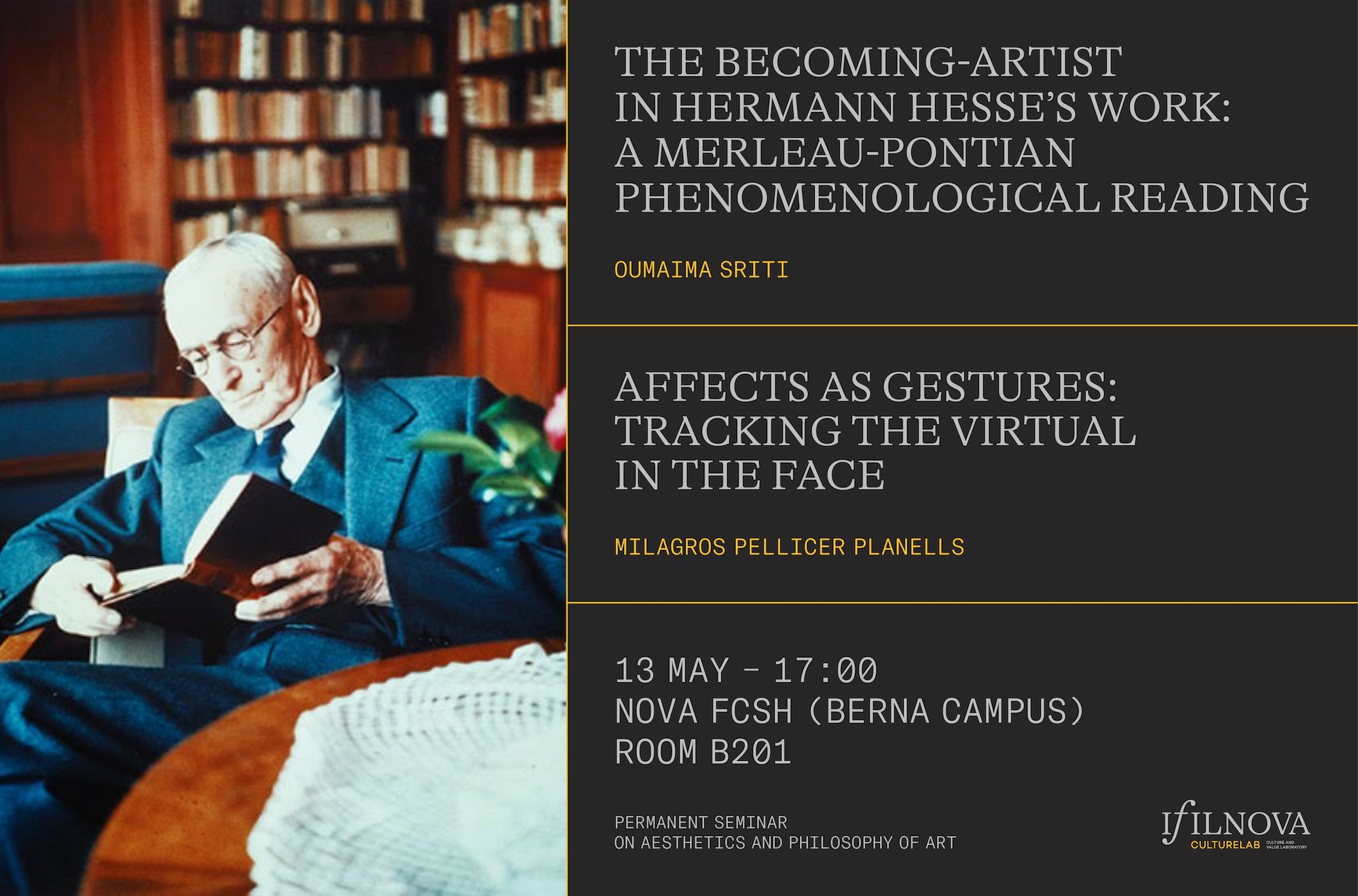Oumaima Sriti & Milagros Pellicer Planells

The Becoming-Artist in Hermann Hesse’s Work: A Merleau-Pontian Phenomenological Reading
Drawing on Maurice Merleau-Ponty’s phenomenological reflections in Phenomenology of Perception, this presentation focuses on the articulation between body, experience, embodiment and the process of becoming an artist. The artistic path, as depicted in Hermann Hesse’s work, is presented as an existential journey rooted in embodied perception and initiatic metamorphosis. It concentrates on moments where the subject, to fulfill itself, must go through rupture, uncertainty, and the temporary dissolution of self, moments that precede any conceptual articulation. The body, as the site where meaning emerges before being spoken, becomes the medium through which artistic call is being expressed.
Bio
Oumaima Sriti is a PhD student at the SLLACH Laboratory (Language Sciences, Literatures, Arts, Communication, and History), Faculty of Letters and Human Sciences at Dhar El Mahraz, University of Sidi Mohamed Ben Abdellah (USMBA), Fes, Morocco. Her thesis focuses on the lived experience of becoming an artist in resonance with Merleau-Ponty’s phenomenology, particularly his reflections on artistic creation as an expressive unfolding of embodied meaning. She has participated at the conference Penser la paresse et la lassitude with a paper entitled “L’oisiveté chez Hermann Hesse: plaidoyer pour un art perdu”, and at the international study day Mythologies africaines et pensée philosophique with the communication “Le corps vécu comme matrice de sens mythique: approche phénoménologique”.
Affects as Gestures: On Faces and the Appearance of the Virtual
Based on Gilles Deleuze’s study of the affection-image, this presentation aims to address the triangulation between close-up, affect and face. The face, as an expression of affect, concentrates a whole series of intensive gestural micro-movements that allow the appearance of virtual flows in the actualisation of the state of things, without ever being fully actualised, since affect continually escapes capture. The virtuality of gesture will be explored through a study of Esther Shalev-Gerz’s Entre l’écoute et la parole: derniers témoins, Auschwitz (1945-2005) and its exhibition context. In this movement-image, Shalev-Gerz creates a triptych montage presenting three simultaneous close-ups of faces taken from a series of interviews with the last survivors of Auschwitz. The slowed-down montage concentrates those barely perceptible gestures that contain a strong affective charge: they are gestures, often eliminated from the interviews insofar as they interrupt the pursuit of the action – that is, the discourse -, that break with the spatio-temporal structure that constitutes the organisational plane of an actualised state of things. This communication will therefore focus on tracing the virtual in the face, in the close-up, in order to address the affective and virtual potentiality of gesture.
Bio
Milagros Pellicer Planells is an FPU predoctoral researcher in the Department of Philosophy and Society at the Complutense University of Madrid and a member of the UCM research group Contemporary Aesthetics: Art, Politics and Society. Her main lines of research focus on the relationship between aesthetics and affectivity. She has co-organised the International Congress on New Materialisms (UCM, 2025) and co-edited the collective volume Crítica de la subjetividad neoliberal. Un análisis desde la estética y la teoría de las artes (Guillermo Escolar Editor, 2024).
The session will be in English.

